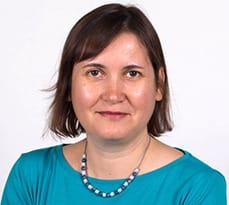A broader look at how multinational enterprises grow profitably over time.
How do multinational enterprises (MNEs) grow and prosper? The topic has fostered hundreds of research papers since the 1959 publication of a watershed book, The Theory of the Growth of the Firm by Edith Penrose, the most influential work in this area.

A new study co-authored by Professor Yasemin Kor of Cambridge Judge Business School, published in the Journal of International Business Studies, suggests that much of this research may be too narrowly focused.
The study reviewed literature on this subject in leading international business journals and finds that most research on MNE growth has focused on companies’ entry and expansion (or exit) from a single market beyond its home market. The authors term this a “critical gap in research because MNE experience in a single market can “explain only a fraction” of the total growth story, so they recommend a much broader look at MNE growth.
The review also found that most research in this area has emphasised the role of knowledge concerning the “host country” (the international market expanded into) while giving insufficient attention to firm-specific managerial knowledge and learning, which are essential for effective co-ordination and knowledge transfer as part of long-term profitable MNE growth.
Such firm-specific managerial knowledge and learning “shapes the direction of the growth of MNEs and ensures its administrative coherence.”
The review examines through a “Penrosean lens” (the work of Edith Penrose) research over a 25-year period, 1995-2019, using a final sample of 199 articles in leading journals such as Academy of Management Journal, Administrative Science Quarterly, and Journal of Management Studies.
“The review synthesises the findings of these journal papers to examine more closely the process of MNE growth including facilitators and constraints relating to growth,” says co-author Professor Yasemin Kor, Beckwith Chair of Management Studies at Cambridge Judge Business School. “We compared research in this area and found that one under-examined area was firm-specific learning, so the paper highlights that.”
By taking stock of such research through a framework inspired by the Penrose growth theory, the review says it aims to help scholars “make better sense of the accumulated research insights, which are rich but remain scattered across different studies with different theoretical roots, levels of analysis – for example, firm versus subsidiary growth – and national contexts.”
The review suggests that MNE growth can be boosted by international managers who have both breadth and depth inexperience. Some subsidiary managers spend their entire career specialising in only one country or region when they “might benefit from a broader understanding of MNEs’ growth strategy that includes a range of markets”.
Such broader experience in multiple markets can also create a strong pipeline for key roles at MNE headquarters, as “multi-country exposure can sharpen managers’ ability to detect and evaluate new opportunities (entrepreneurial skills) and oversee new initiatives (execution skills),” the paper says.
The study, “A review of research on the growth of multinational enterprises: a Penrosean lens”, is co-authored by Professor Danchi Tan and Dr Weichieh Su of the Department of International Business at Chengchi University in Taiwan, Professor Joseph T. Mahoney of Gies College of Business at the University of Illinois at Urbana-Champaign, and Professor Yasemin Kor of Cambridge Judge Business School.


